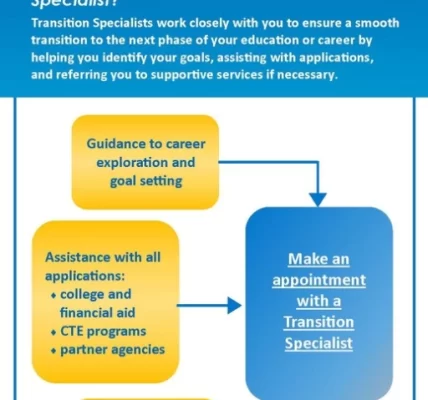Vocational education plays a crucial role in preparing individuals for careers that require specific skills and hands-on expertise. These programs focus on practical training, combining technical knowledge with real-world application. Here are the key components that contribute to the success of vocational education programs:
**1. **Hands-On Training:**
At the core of vocational education is hands-on training. Students actively engage in practical tasks related to their chosen field, gaining valuable experience that goes beyond theoretical knowledge. Whether in workshops, laboratories, or simulated work environments, hands-on training is a cornerstone for skill development.
**2. **Industry-Relevant Curriculum:**
Vocational education programs align their curriculum with industry needs and standards. This ensures that students acquire skills that are directly applicable in the workplace, making them well-prepared for the demands of their chosen profession.
**3. **Qualified Instructors with Industry Experience:**
Instructors in vocational education programs typically have practical experience in the industry. This firsthand knowledge allows them to provide insights, mentorship, and real-world perspectives to students, enhancing the relevance and applicability of the curriculum.
**4. **Internships and Work-Based Learning:**
Vocational education often incorporates internships, cooperative education, or apprenticeships as part of the curriculum. These experiences provide students with the opportunity to apply their skills in authentic work settings, build professional networks, and gain a deeper understanding of their chosen field.
**5. **Soft Skills Development:**
While technical skills are paramount, vocational education programs recognize the importance of soft skills. Communication, teamwork, problem-solving, and adaptability are integrated into the curriculum to ensure graduates are well-rounded professionals ready to navigate the complexities of the workplace.
**6. **Certifications and Industry Credentials:**
Vocational education programs often offer the opportunity for students to earn certifications and industry-recognized credentials. These qualifications validate their skills and enhance employability, giving graduates a competitive edge in the job market.
**7. **Career Counseling and Guidance:**
Effective vocational education programs provide career counseling and guidance to help students make informed decisions about their future paths. This includes assistance with resume building, interview preparation, and exploration of potential career trajectories.
**8. **Technological Integration:**
As industries evolve, technology plays a pivotal role in vocational fields. Programs integrate relevant technologies into the curriculum, ensuring that students are familiar with the tools and practices prevalent in their chosen industry.
**9. **Flexibility in Learning Paths:**
Recognizing the diverse needs of learners, vocational education programs offer flexibility in learning paths. This may include part-time options, online courses, or evening classes, accommodating individuals who may be balancing education with work or other responsibilities.
**10. **Collaboration with Industry Partners:**
Establishing partnerships with industry organizations and employers is key to the success of vocational education programs. These collaborations provide students with exposure to real-world challenges, networking opportunities, and potential pathways to employment.
**11. **Continued Professional Development:**
Vocational education doesn’t end with graduation. Programs often incorporate opportunities for continued professional development, allowing graduates to stay current with industry trends and further enhance their skills throughout their careers.
**12. **Focus on Entrepreneurship:**
Some vocational education programs emphasize entrepreneurship, equipping students with the knowledge and skills needed to start and manage their own businesses within their chosen field.
**13. **Inclusivity and Diversity:**
Vocational education programs strive to be inclusive and diverse, ensuring that individuals from various backgrounds and experiences have equal access to opportunities and resources.
In conclusion, vocational education programs succeed by combining theoretical knowledge with practical application, aligning with industry needs, and fostering a holistic approach to skill development. These programs play a vital role in equipping individuals with the expertise needed for successful and fulfilling careers in their chosen fields.













